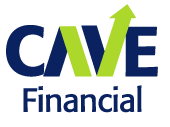Cost of Kids Expands to Meet Your Household Budget
Tue May 21st 2019
Exactly how much it costs to have a baby is the topic of fierce debate! This article from 'Stuff' looks at the what it costs to provide for a child, and ways to free up some extra cash.
The Duke and Duchess of Sussex have a few things going for them that the average new parents don't: Baby presents from around the world. Magazines clamouring for photos of the newborn. Staff.
But while the newest Windsor baby makes headlines, hundreds of thousands of other people are becoming parents, too, and face something more of a financial burden because of it.
Exactly how much it costs to have a baby is the topic of fierce debate – in Britain, it was estimated that the "full" cost of a child over 18 years for a two-parent family was £150,753 ($299,126). In New Zealand, studies have suggested that a low-income family would spend $280 per week on two children or $480 on four. Higher-income earners would spend $700 a week on two kids or $1100 on four.
A Plunket, BNZ and Massey University study in 2014 found that the average parent spent $13,644 on a baby in the first year of life and $18,765 a year on toddlers, including childcare. That included $2000 a year on food for a toddler, $800 for clothing and about $11,500 in childcare.
Other things such as bedding cost more than $1500 and car seats, strollers and other accessories added hundreds to the bill.
Financial adviser Martin Hawes said a new baby usually necessitated a rethink of the household budget.
Some new parents would need to reset their mortgage if their household income dropped significantly, he said. "If you're down to 19 years left on your mortgage because you've been paying it for six, you could put it back to 25 or go interest-only. It's undesirable but people do face some pretty stark choices at that time."
He said, even when income went back to something more like normal, there would be additional childcare expenses.
But he urged parents not to give up on KiwiSaver because of the "free money" available from the Government in the member tax credit. Even those who were not working could get $521 a year in their accounts if they contributed $1042.
Research company IBISWorld estimates that childcare, clothing and footwear were the fastest growing areas of expense for New Zealand parents, up 60 per cent between 2013/2014 and 2018/2019.
The company suggested Kiwi families spent on average just over $5028 per baby last year on those expenses, up from $3034.
Topping the list for revenue growth was the childcare industry, which IBISWorld said was earning $1.1 billion, almost double the $582.6m it took in five years ago.
Hawes said new parents should also think about the future for their kids.
They could set up a KiwiSaver account - some schemes offer free accounts for people who are under 18 - and ask grandparents and other family members to contribute a couple of dollars a week. "It's a time of great joy and excitement and that's the time to hit up family members."
Article taken from stuff.co.nz, by Susan Edmunds 7th May 2019.

Need our help?
We're here to answer your questions.
service@cavefinancial.co.nz
09 302 7310
1D Roberta Avenue
Glendowie
Auckland 1071
New Zealand



